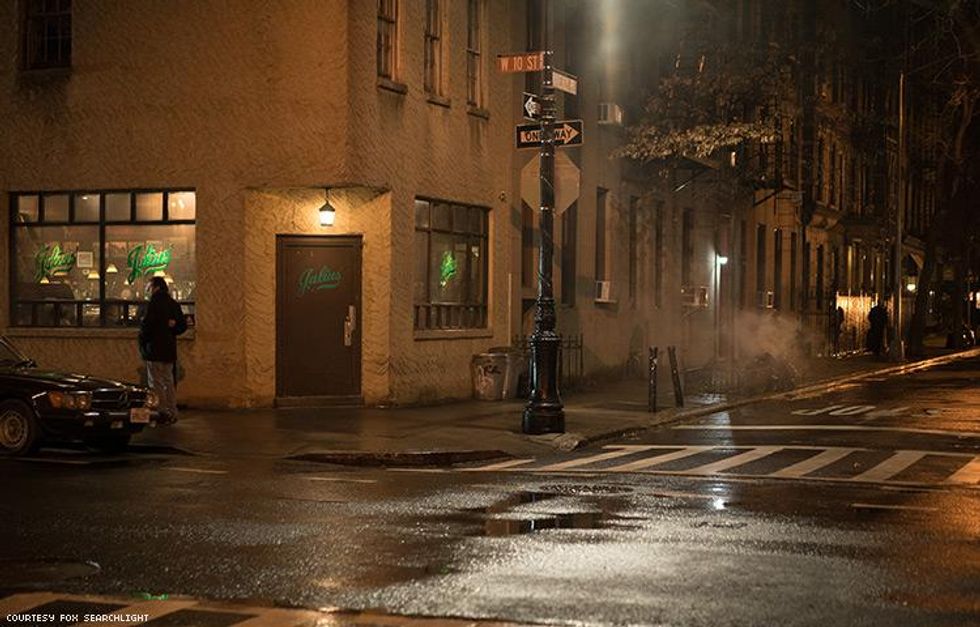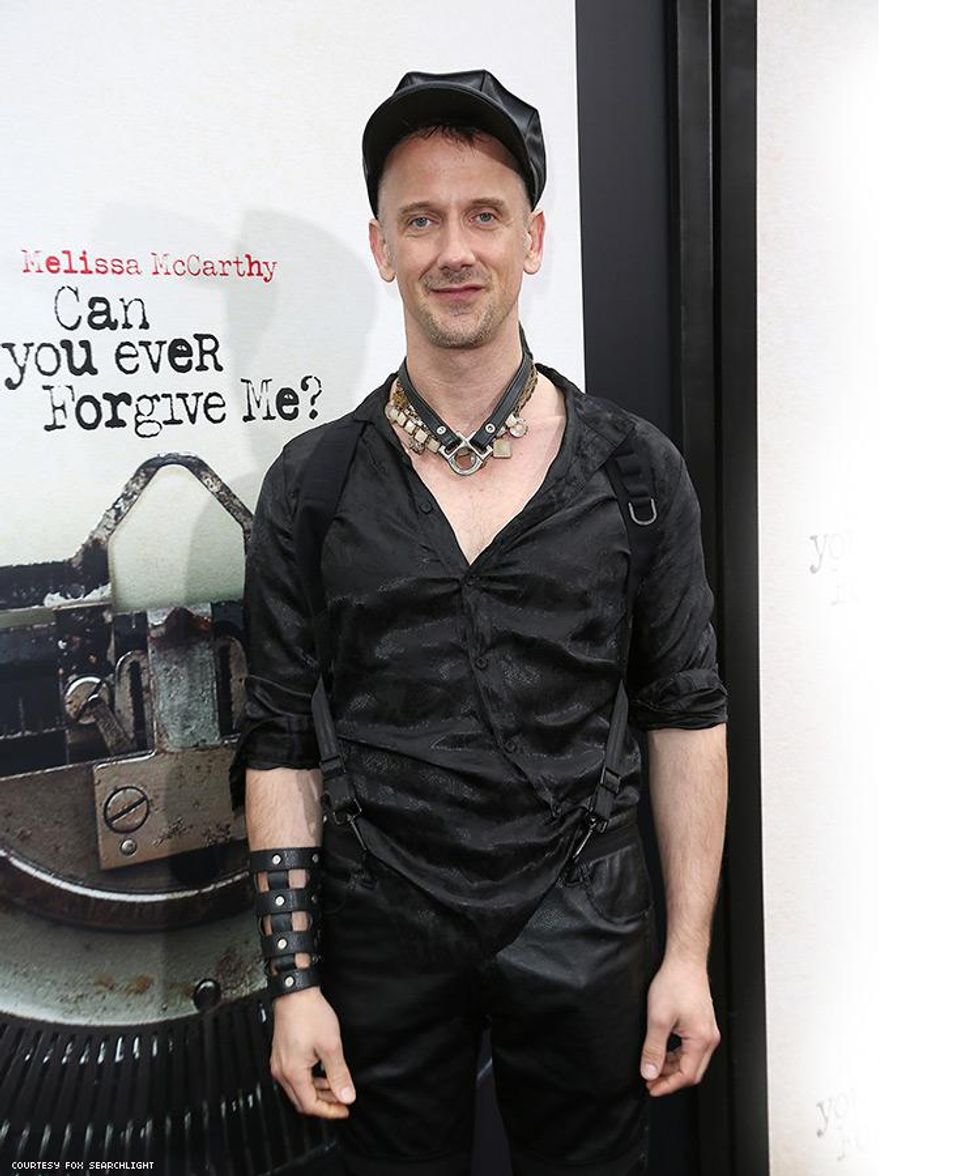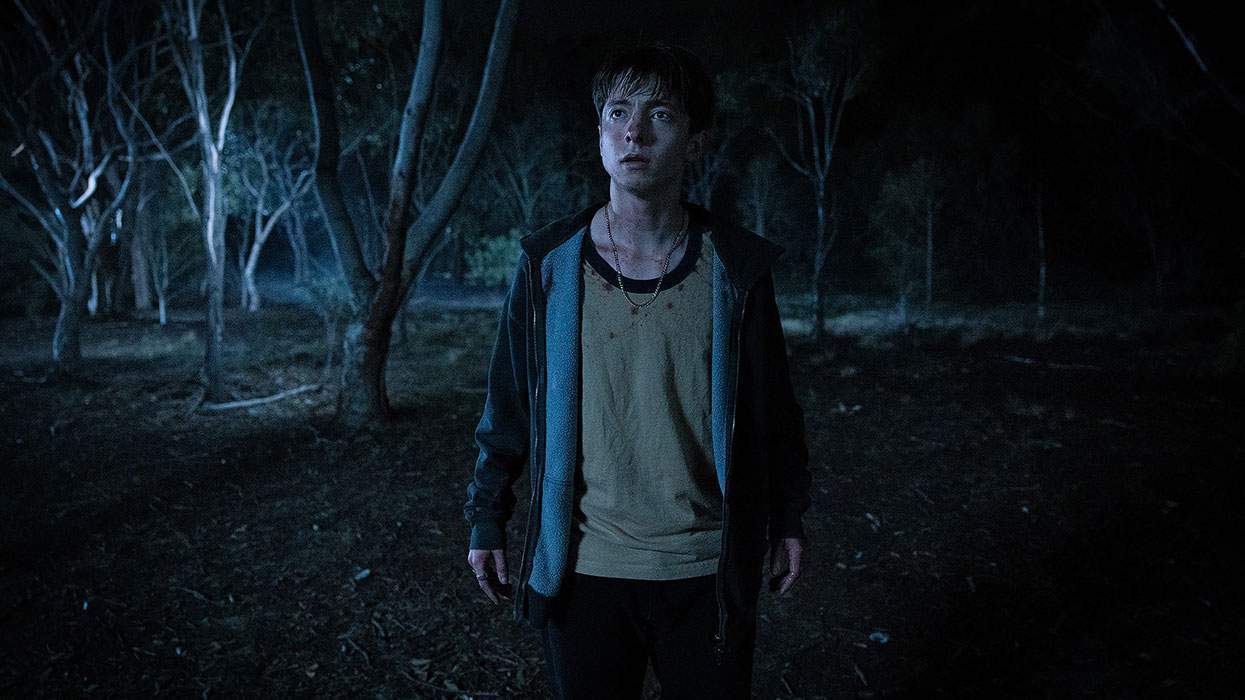Jeff Whitty will never forget the first time he walked into Julius'. The gay writer -- known for penning the Tony-winning book for Avenue Q as well as the films Short Bus and Can You Ever Forgive Me? -- was introduced to the gay Greenwich Village bar around the turn of the 21st century by Ian Falconer, an illustrator for The New Yorker and the Olivia children's book series.
Falconer is a mentor to Whitty, who "showed me what taste is," attested the 47-year-old screenwriter, during a time when he keenly felt the loss of older queer men from the AIDS epidemic and their collective cultural memory. Whitty recalls Falconer leading him past the hustlers lining 10th Street and into a place teeming with history.
"It really has this incredible era of authenticity to it ... this feeling of where past, present, and future are all residing together," Whitty said. "I think we went there in the afternoon, as I recall, so it was just that that wonderful feeling of hiding away in plain sight right by those windows."
Those windows -- glass panes with "Julius'" printed in green cursive -- framed one of the most important events in LGBTQ history. The bar, which began attracting queer customers in the 1950s, was the site of a 1966 "sip-in" organized by the Mattachine Society. That year, members protested regulations from the New York State Liquor Authority banning service to "suspected" queer people. A version of this event -- one of the first acts of civil disobedience in the modern LGBTQ rights movement -- was depicted in the 1995 Stonewall film, which used the setting of the more famous gay bar in its title.
The demonstration and the publicity surrounding it led to a change in the law that helped free queer people from meeting in secrecy and the grip of mob-run establishments. This history was honored in the present day by gay filmmaker John Cameron Mitchell, who helped throw a monthly party there called "Mattachine" to keep this legacy (and the bar itself, which is still operational) alive.
And the Mafia did play a major role in the history of Julius'. Whitty recounted how, during Prohibition, mob members would decorate its walls with portraits of their girlfriends. Later these pictures were painted over, although one is still slightly visible near one of the bar's side doors. The structure itself was built in 1826, and it served as a grocery store before becoming a bar in 1864. It is now considered the oldest continually operating gay bar in New York City, where figures like Truman Capote and Tennessee Williams once frequented, as seen in the newspaper clippings that now line its walls. Julius' was named to the National Register of Historic Places in 2016.
"That place is full of ghosts, you know," Whitty attested.
One of those ghosts is Lee Israel -- the lesbian writer at the center of Can You Ever Forgive Me?, written by Whitty with Nicole Holofcener and based on Israel's memoir of the same name. Julius' is a central setting of the film (which was actually filmed there, on location), where Israel, played by Melissa McCarthy, drowns her sorrows. She befriends a gay man there, Jack (Richard E. Grant), who becomes an accomplice in an operation of forging letters from famous people like Williams, Tallulah Bankhead, and Katharine Hepburn.
Israel died in 2014. But during her lifetime, she was a regular at Julius'. "She would hold court there with her headphones on, sometimes sitting in the corner," recalled Whitty, who said it was not only the queer clientele that made the bar a favorite haunt of the late biographer. Israel, despite her forgeries, valued "what is authentic, and she was very short-tempered with the inauthentic shortcuts that people take to get things up these days," Whitty said.
"You just go in and it feels like home, that place. And also the burgers are good, so you can have dinner," Whitty added with a laugh, a reference to Julius' notable distinction as a gay bar where food is served in addition to alcohol.
Julius' was where Whitty met Israel. The pair crossed paths there about seven years ago by accident, during a bar crawl for Whitty's 40th birthday when, over the course of the evening, the writer was dressed by friends in costume pieces, including a pair of bunny ears. Whitty, who had been adapting Israel's memoir for a screenplay but had not yet met the author in person, spotted Israel in a corner. "I said, 'Oh, my God, that's her. That's undeniably her,'" to his friend Heidi Schreck, playwright of What the Constitution Means to Me.
"I wove over to their table and I said, 'Lee? Lee Israel?' And she looked warily up at me and said 'Yes?' And I said, 'I am Jeff Whitty. I wrote the screenplay of your life.' And she said, 'Oh, I was looking at you over there with those bunny ears on and telling my friend I couldn't wait for you to leave.'"
"I've never laughed so hard. I appreciate that kind of thing," Whitty said. "And then we got along really well and had burgers at Julius' a couple of weeks later sitting pretty much at the same table where that last scene in the movie takes place in the bar."
"You know, it kills me. It kills me she didn't make it to a see the movie as it turned out, because it would have been such a glorious full circle for her," he added. "But she kind of got it anyway with the memoir."
Like the memoir, the film details how Israel, a notable biographer of figures like Hepburn and Bankhead, who published books throughout the 1970s and '80s, had fallen on hard times during the '90s. Opportunities had dried up, and she turned to forgeries as well as the stealing of archival materials from libraries as a means of generating income. Besides Jack, her one notable companion in that period of her life was a cat. And her apartment, much like her life, was a mess.
When Whitty set out to depict Julius', which Israel also writes about in length in her memoir, he wanted to capture that sense of home that is absent from her actual residence. "It was a landing spot for Lee, who we see so isolated throughout so much of the film and her apartment is really depressing," he said. "You know, I lived in an apartment very much like that. I didn't have cats, thankfully. But Julius' was, as I said before, the place that lonely hearts could go and find a connection with people. Because as prickly as she was, Lee, she wasn't antisocial completely. She just had tough standards."
Of course, Can You Ever Forgive Me? isn't only an ode to Julius'. Set in the 1990s, the film shows how a gay bar was a refuge for many queer people in that era, including Jack, a former hustler who was homeless and HIV-positive. (The film is a rare portrait of a friendship between a queer man and woman.) It also shows a window of what has been lost in the current digital era, when hookup apps like Grindr have led many gay bars to shutter.
"You can go into Julius' and sit down. And with the bartenders, if not the patrons, you could strike up a conversation. I think people hunger for that these days," Whitty said. "I'm a writer who works from home. And sometimes I get an Uber car and it's just so exciting. I get to actually have a conversation with somebody face to face."
"Technology's funny the way it can splinter us from the moment, but then it also does allow for other means of connection," Whitty marveled.
In Can You Ever Forgive Me? Whitty (pictured above) paints a portrait of a gay bar in the past that is still alive in the present. Yet the film is also a hopeful vision of what the future can hold for physical spaces where LGBTQ people gather -- and more broadly, for society.
"You'll go into Julius' and it's not just going to be gay men, or even gay men and lesbians, but this wonderful cross-section of people, of humanity," he said. "And that, to me, is the future -- that this bar so steeped in history contains, I think, the key for our future happiness as well, which is radical inclusiveness ... not causing harm to others and welcoming people of all different categories and giving them a place. And it's a place where the eccentrics can go as well as the straight-edgers."
There, "everyone can pull up to the table and have a burger and be included," Whitty said.
Can You Ever Forgive Me? is now playing in select theaters. Watch the trailer below.

















Charlie Kirk DID say stoning gay people was the 'perfect law' — and these other heinous quotes
These are some of his worst comments about LGBTQ+ people made by Charlie Kirk.